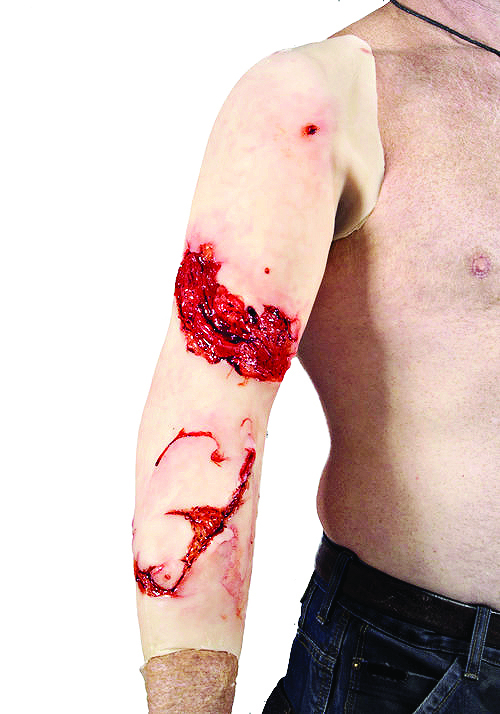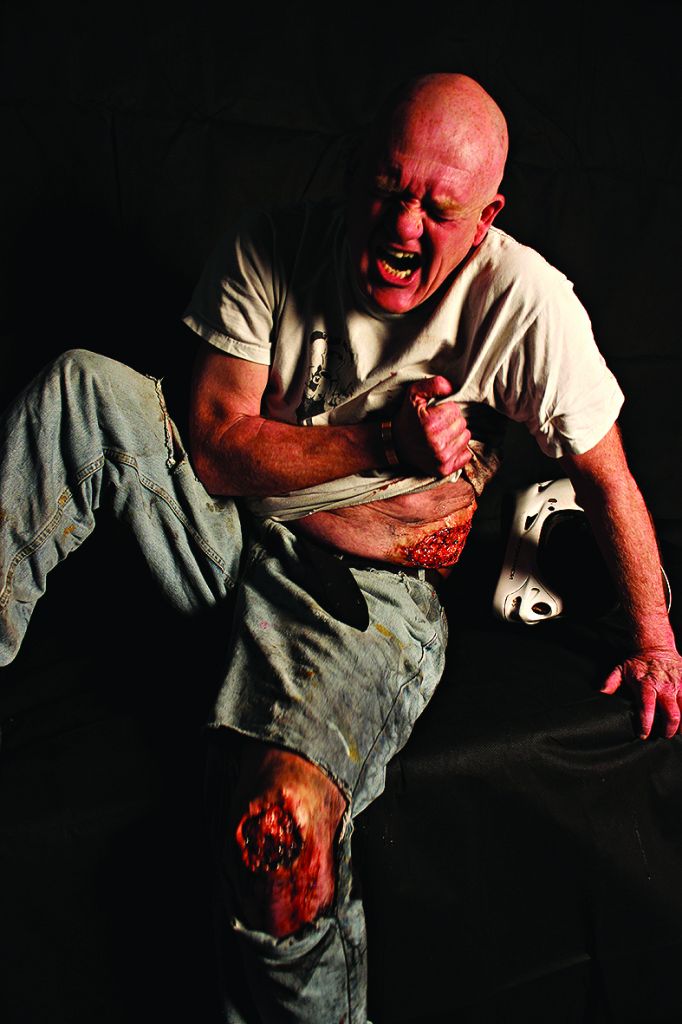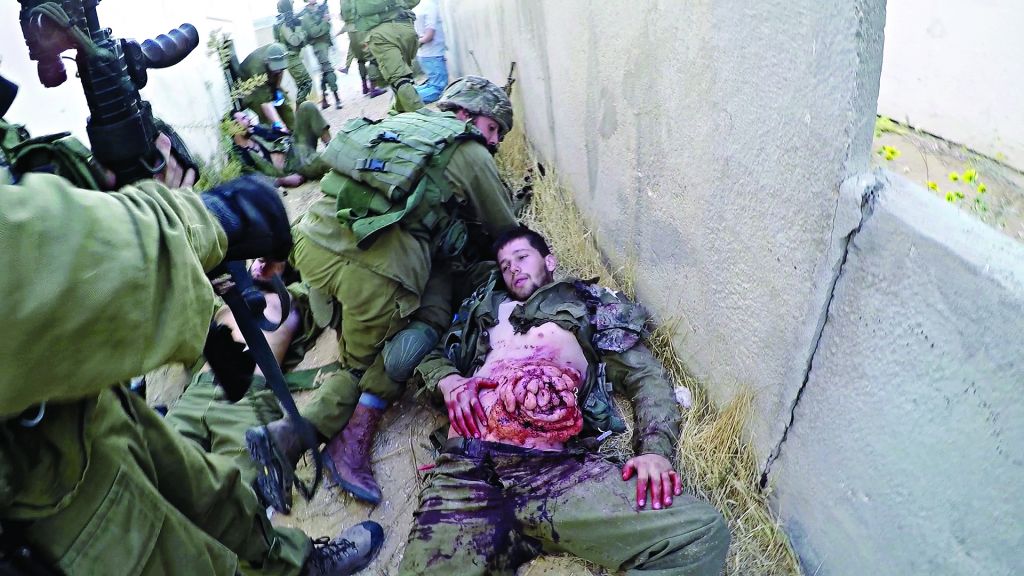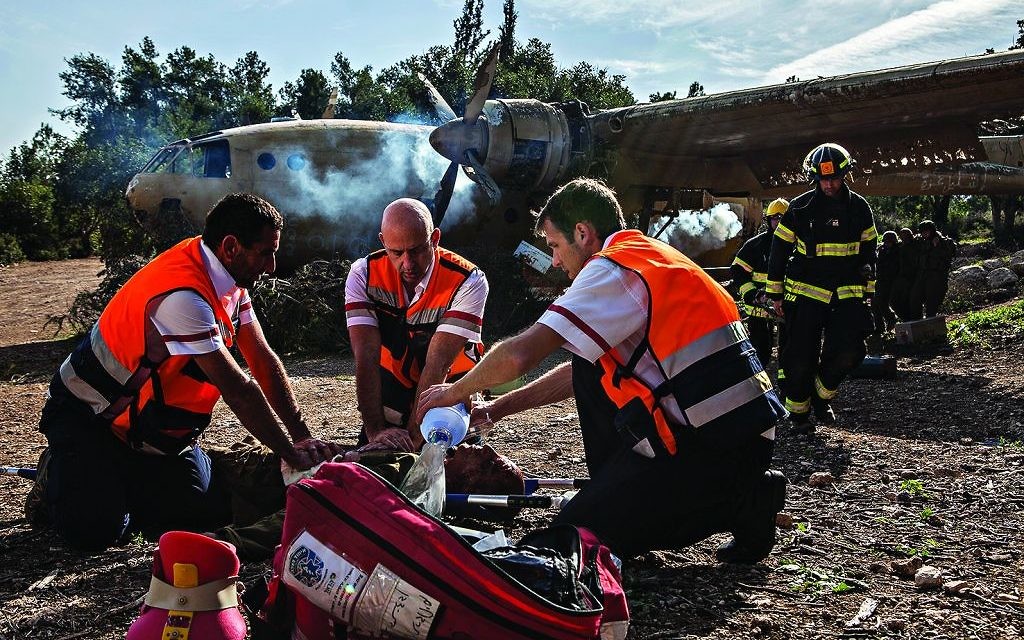Using Hollywood-style special effects for disaster training
Israeli-British company Extreme Simulations in creating realistic scenarios for disaster training such as terrorist incidents
It’s hard to make out what’s going on. There’s smoke, and shouting. Sirens and gunfire; blood everywhere.
The rescue teams rush in, and it’s chaos as they try to assess the casualties and make decisions on the spot. People are panicking.
This nightmare is an all-too-familiar scenario in today’s world. Emergency teams train and plan for just this kind of disaster: a terrorist attack in the middle of a crowded city, a street battle erupting and getting out of hand.
Get The Jewish News Daily Edition by email and never miss our top stories Free Sign Up
Oriel Herman, CEO of the Israeli-British startup Extreme Simulations, says it’s impossible for rescuers to train accurately for just such a disaster, unless the training is made to look, sound, and smell as realistic as possible.
The idea for his company came about through conversations with his friend Jonathan Bahat, a reserve lieutenant colonel, who had served in combat roles in the Golani Brigade and several elite units. Bahat was then working as a military consultant with the Israel Defense Forces [IDF]. He was frustrated that the IDF’s emergency training had some serious shortcomings.
“[The IDF] came with the problem that we’re not prepared. The training we do now doesn’t prepare us for extreme situations,” says Herman.
At the time, Herman’s sister, Ruth, had moved to London, where she had studied at the Wimbledon College of Arts.

“The UK is the biggest supplier of props and special effects,” Herman continues. “My sister works in the special effects business, and we thought: ‘Why don’t we use this?’ And so we started with something very visual.”
What Bahat and the Herman siblings came up with was straight out of a Hollywood action thriller set. In London, Ruth began creating ultra-realistic-looking fake limbs made out of special silicone and fabric that could be put onto a human volunteer or mannequin. Instead of using unrealistic mannequins or fellow soldiers pretending to be casualties, security agencies and first aid teams could get a far more realistic training scenario using Ruth’s “wearable wounds”.
They partnered with a special effects studio in Gloucestershire. Ruth is the chief designer, in charge of manufacturing the special effects.
One of their main inventions is the scarily-named “task trainer bleeding arm”.

“A tourniquet is too painful to do for real,” Herman explains. “It’s very painful – if I were to do one on you, you’d scream. There are pressure points you have to know, so only doctors can do it. [But] with our system, many more people can train. Also, it tells you if you’re doing it right.”
From theatrical fakery, the company is now looking to upgrade all the wearable props to equip it with smart systems that will give pulse and blood pressure readings of the simulated casualty, allowing medics to see, in real time, during training, whether the treatment they are giving is effective.
“It started low tech, with special effects,” Herman explains. “Then we said: ‘Let’s take it to the next level.’ So we added a blood machine.”

A smartphone will be used to control the gadgets and give readings. The fake blood machine is controlled by an activation app, and they can choose whether to simulate venal or arterial blood. Recently, the company took on a new partner, who will be in charge of expanding the animatronics and robotics side of things.
So far, they have run several training exercises in Israel – including with the IDF and the United Rescue organisation. They are on the verge of signing a deal with Sheba Hospital, one of Israel’s main teaching hospitals, at its Medical Simulation Centre.
It’s still early days – the company has not yet started marketing its products. It is looking to raise £600,000 for this next phase. So if anyone out there is sufficiently intrigued and would like to become an Extreme Simulations angel, Oriel Herman says don’t be shy and to give him a ring.

Thank you for helping to make Jewish News the leading source of news and opinion for the UK Jewish community. Today we're asking for your invaluable help to continue putting our community first in everything we do.
For as little as £5 a month you can help sustain the vital work we do in celebrating and standing up for Jewish life in Britain.
Jewish News holds our community together and keeps us connected. Like a synagogue, it’s where people turn to feel part of something bigger. It also proudly shows the rest of Britain the vibrancy and rich culture of modern Jewish life.
You can make a quick and easy one-off or monthly contribution of £5, £10, £20 or any other sum you’re comfortable with.
100% of your donation will help us continue celebrating our community, in all its dynamic diversity...
Engaging
Being a community platform means so much more than producing a newspaper and website. One of our proudest roles is media partnering with our invaluable charities to amplify the outstanding work they do to help us all.
Celebrating
There’s no shortage of oys in the world but Jewish News takes every opportunity to celebrate the joys too, through projects like Night of Heroes, 40 Under 40 and other compelling countdowns that make the community kvell with pride.
Pioneering
In the first collaboration between media outlets from different faiths, Jewish News worked with British Muslim TV and Church Times to produce a list of young activists leading the way on interfaith understanding.
Campaigning
Royal Mail issued a stamp honouring Holocaust hero Sir Nicholas Winton after a Jewish News campaign attracted more than 100,000 backers. Jewish Newsalso produces special editions of the paper highlighting pressing issues including mental health and Holocaust remembrance.
Easy access
In an age when news is readily accessible, Jewish News provides high-quality content free online and offline, removing any financial barriers to connecting people.
Voice of our community to wider society
The Jewish News team regularly appears on TV, radio and on the pages of the national press to comment on stories about the Jewish community. Easy access to the paper on the streets of London also means Jewish News provides an invaluable window into the community for the country at large.
We hope you agree all this is worth preserving.
-
By Brigit Grant
-
By Laurent Vaughan - Senior Associate (Bishop & Sewell Solicitors)
-
By Laurent Vaughan - Senior Associate (Bishop & Sewell Solicitors)
-
By Laurent Vaughan - Senior Associate (Bishop & Sewell Solicitors)
-
By Laurent Vaughan - Senior Associate (Bishop & Sewell Solicitors)






















